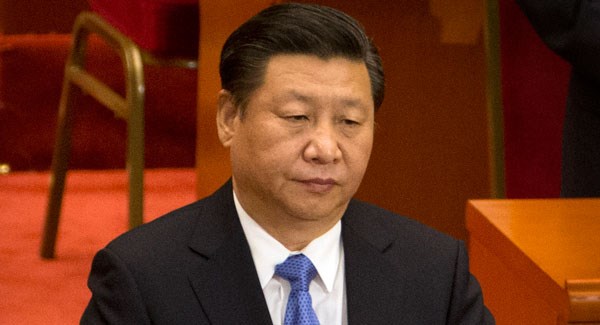China’s ambitious Belt and Road Initiative(BRI) which was launched with much fanfare is fast turning out to be a huge dampener for China. The initiative is now facing a stiff backlash with partner countries seeing this as a plan by the Chinese government to trap them with huge debts and colonise their respective countries and this backlash is all set to cost the Belt and Road Initiative about $800 billion as countries are becoming increasingly vary to do business with China.
According to a report, the backlash could shave as much as $800 billion off investment in President Xi Jinping’s signature Belt and Road Initiative. The backlash is so severe that even African countries like Sierra Leone and Tanzania have raised their voice against China’s BRI. Both the African countries have decided to scrap projects under BRI with Sierra Leone recently scrapping project worth $318 million due to heavy debt burden. Tanzania too scrapped a $10 billion project to develop the Bagamoyo port under BRI as it was deemed ‘exploitive’ by its President, John Magufuli. Magufuli alleged that Chinese financiers set “tough conditions that can only be accepted by mad people.”
BRI has continued to taste failure at every step of its way with the Hambantota airport being dubbed as “the world’s emptiest airport” to Malaysia scrapping Chinese projects worth $20 billion. While China continues to navigate through choppy waters, its all-weather friend, Pakistan has dealt a fatal blow to BRI. The Gwadar Port, which is built and managed by China was one of the first steps that the country took to colonise Pakistan and positioned it as the crown jewel of the China Pakistan Economic Corridor(CPEC) and BRI.
Gwadar port was considered to be the gateway to landlocked Afghanistan but the port is facing numerous issues like inadequate handling of cargo and lack of use of the port for transit to Afghanistan. This has prompted China’s COSCO Shipping Lines to terminate its container liner services between Gwadar and Karachi due to the poor pace of construction of Gwadar Free Trade Zone.
COSCO has also slammed the Pakistan administration for their inept functioning of Gwadar customs coupled with high-inland shipping cost and non-acceptance of transit items and the subsequent policies have seriously hindered COSCO’s Gwadar service and hence, has decided to terminate its services at Gwadar despite the high amount of subsidy granted by the China Overseas Port Holdings Corporation (COPHC). In the meanwhile, Chabahar port in Iran, which is being jointly developed and managed by India is fast emerging as the gateway to Afghanistan. Additionally, the Gwadar region is facing stiff resistance from the locals leading to various attacks on Chinese Nationals and projects, which should be a major cause of concern for China given the amount the investments they have made in the region. Gwadar was supposed to be the pillar of BRI in South Asia which currently lies in tatters.
It is an open secret that China wants to colonise poor countries in Asia and Africa by luring them with huge Chinese investments and subsequently trapping them in huge debts as was the case with Sri Lanka and the Maldives.
The other motive behind the Belt and Road Initiative was to position China as the sole global superpower with many viewing the BRI as a mere public relations ploy. However, China is even failing on that aspect. According to a survey conducted by a Singapore based think tank, BRI is viewed negatively in South East Asia and according to an Economic Times Survey, more than one-third of those surveyed complained about the lack of transparency in Chinese investments and 16% predicted China’s plan will eventually fail. The public perception has played a huge role in Malaysia scrapping the projects under BRI with about 70% respondents in Malaysia, Thailand and Philippines cautioned their governments to be conservative and careful when it came to BRI and the subsequent debts associated with the projects under BRI. To further add salt to the wounds of China, another report claims that the Chinese Belt and Road Plan may result in 2.7 degree Celsius warming which would effectively compromise the goals of the Paris Agreement, thus making BRI an unattractive proposition.
Chinese President Xi Jinping has gained sweeping powers in China and his Community Party effectively making him one of the strongest leaders China has ever seen. But it seems that his ambition has got the better of him and China simply can’t afford to let BRI fail given the state of its economy and the number of investments already made. BRI might prove to be Xi Jinping’s and the Communist Party of China’s downfall.
